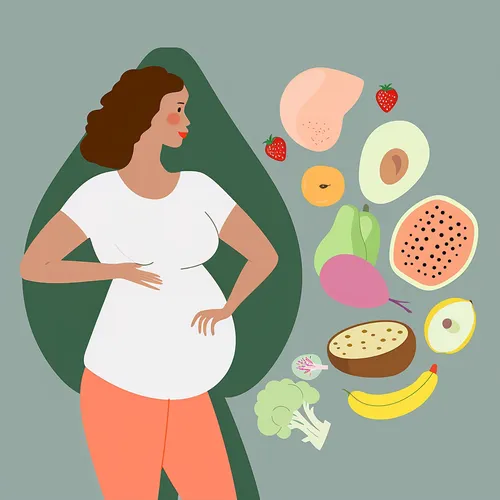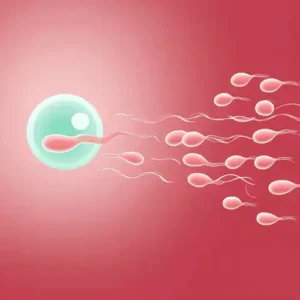Pregnancy is a time many women spend going over their diets like they were preparing for an Olympic competition. No alcohol, little caffeine, and every morsel of food is examined from every possible angle to see if it is something that will help the baby, or harm it.
Even if we do secretly indulge in a chocolate bar (or 5) most of us who have gone through pregnancy want to eat food that will help the baby be stronger, smarter, and healthier.
Wild Alaskan Salmon
If you’re craving fish you might have been avoiding it due to the high mercury content. Large predatory fish such as tuna and swordfish are very high in mercury, and this isn’t healthy at all. Plastics have also been found to make their way up the food chain, and ingesting toxin filled plastics with every bite you take isn’t good for the baby either. These kind of fish should be on your list of foods to avoid when trying to get pregnant.
Luckily, you can still get your vital omega 3s from fish, just make sure it is wild Alaskan salmon. Wild salmon from Alaska is relatively pure and clean, and you are less likely to get dangerous mercury or toxins from it. You can save money by shopping for canned salmon – just make sure it specifies Alaskan. Atlantic salmon is typically farmed, and is full of dangerous chemicals.
Oranges
Not only are oranges packed with vitamin C and anti-oxidants, they are also a great source of folate. Folic acid is incredibly important to your baby – a lack of it in the womb can lead to Spina Bifida, a painful birth defect that can shorten their lives.
Oranges can help prevent that birth defect, so grab a bag of them and go crazy. You can’t overdose on vitamin C from food!
Eggs
An egg contains all of the nutrients a baby chick needs in order to survive for 21 days. That makes it a powerhouse of nutrition, and one you can take advantage of. Get extra protein, vitamins, and choline from this source.
Not only are eggs a great source of protein, but they are also packed with essential vitamins and minerals. They are particularly rich in vitamin B12, which is crucial for brain function and the formation of red blood cells. Additionally, eggs provide a good amount of vitamin D, which promotes strong bones and a healthy immune system. Furthermore, eggs are an excellent source of choline, a nutrient that plays a vital role in brain development and function. Adding eggs to your diet can help improve overall health and well-being.
Lean Meats
Lean meats like chicken and turkey are excellent sources of protein during pregnancy. Protein is essential for your baby’s growth and development, helping to build and repair tissues. Opt for skinless poultry to minimise saturated fat intake. Grill, bake, or stir-fry lean meats for healthy meal options packed with nutrients.
What’s Choline?
Choline doesn’t get the same attention as other nutrients such as vitamins, and even anti-oxidants, but it is very important to you and your baby’s health. Not enough choline can lead to neural tube defects, so eat up your eggs!
Dark, Leafy Greens
Admit it, you know this one was coming. While we don’t always love gobbling down tons of spinach and rocket, dark leafy greens are an important source of iron. Anaemia is extremely common in women in general, and even more likely in pregnant women. Anaemia can cause a whole host of issues from pika (the desire to eat non-food substances, in the case of anaemia chewing ice is very common) to low oxygen.
Eating your greens is a great way to get extra minerals.
Whole Grains
Complex carbohydrates found in whole grains provide long-lasting energy to fuel you through pregnancy. Whole grains are also rich in fibre, helping to prevent constipation – a common issue during pregnancy. Choose options like whole wheat bread, brown rice, porridge oats, and quinoa. Fibre also promotes feelings of fullness, which can be helpful if you’re struggling with nausea or appetite changes.
Dairy Products
Yoghurt can help reduce yeast infection, which is more common in pregnant women. Your developing foetus is also asking your body for calcium in order to make bones and teeth. Milk products are a great source of calcium, so indulge in an extra glass of milk, and eat your yoghurt too! (A note for those that are trying to conceive, many people believe that milk can help increase fertility. And if you want more than one baby, yams are rumoured to help ladies conceive twins!)
Stay Hydrated
Drinking enough water is crucial during pregnancy to support your increased blood volume and amniotic fluid levels. Aim for at least 8-10 glasses per day. Proper hydration helps to prevent headaches, fatigue, and constipation. If plain water isn’t appealing, try infusing it with fresh fruit or sip on herbal tea.
If you’re craving unhealthy foods as well, don’t feel guilty about the occasional indulgence (unless it is alcohol. Even a little is too much!) Many well meaning people guilt you when you need a doughnut or other indulgence, and make you feel like you are abusing the baby if you’re not out in the woods eating roots and sticks. Eating healthy is important, but so is not feeling resentful to the child because you can’t give in to your cravings.
And if you are worried that you aren’t eating in the best possible way, or are too busy for healthy meals, you can also supplement with a pre-natal or pregnancy vitamin such as Pregnacare Original.
Illustration by Zoom Baby
Zoom Baby is a leading supplier of Pregnancy Tests and Ovulation Test Kits





